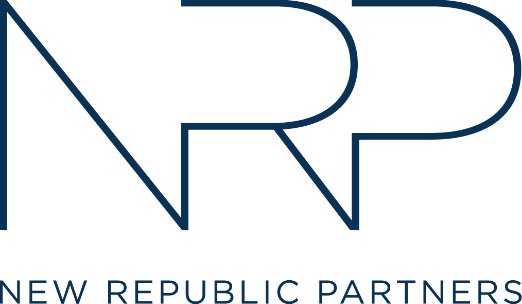By Alexandra A. Bayler, Managing Director, New Republic Partners and William P. Amerine, Managing Director, New Republic Partners
With business transactions accelerating again this year, we are seeing more owners and executives experiencing liquidity events. We are also facing the greatest wealth transfer in history, with $84 trillion set to be passed down to future generations in the next 20 years.1 This article seeks to prepare those who are anticipating or have recently had a financial windfall with an approach that can improve their long-term outcomes.
Everyone has unique goals and views about wealth and money, and it can be a very personal topic. However, the more informed you are, the better you can use your resources to support your goals, those you care about, and your values. Information and guidance from those who have helped others navigate a financial windfall can prevent you from making decisions you may regret later. As Plato said, “Human behavior flows from three main sources: desire, emotion and knowledge.” Knowledge is the source to cultivate when facing a significant increase in your wealth.
If the windfall is large, you graduate into a different set of circumstances. That is not necessarily good or bad, but your options, opportunities and risks change, as does your responsibility. The necessary knowledge across portfolio management, estate law, taxes, and behavioral finance unfortunately does not come with the windfall. We believe there are three themes that can be helpful to remember: Patience, Planning, and Portfolio.
1. Patience: It’s New Territory, Take Your Time
In addition to great opportunities, having a wealth event or significant inheritance can bring up questions of identity, redefining success, worry, distrust and more. It can impact how you spend your time, how you perceive the way people treat you, your responsibilities, and your future goals. Give yourself the time to adjust to your new situation: 1) pause to set your priorities, and 2) shift your mindset from doer to strategist.
Pausing: Adapting to any new situation takes time. After a wealth event, people may spend excessively or can be fearful of spending anything at all; react to investment ideas from their social network or the latest headlines; or depend on old friends with limited experience for professional help. There may be an interest to launch into a new challenge right away that is similar or completely different from your past.
All of this is normal, and the resources are yours, but to make the best decision for yourself long-term, recognize that time and objective feedback bring more perspective. Big purchases, private investments and significant moves are difficult to reverse. As Charlie Munger said, “It’s waiting that helps you as an investor, and a lot of people just can’t stand to wait.” If you don’t have professionals working with you who have multi-generational wealth experience, it may be prudent to consider your options.
Shift Your Mindset: You are now the leader of a “new company,” one that has significant resources with more decisions required. Many eventually choose to transition from being the individual “dealmaker” on all things related to personal finance, to overseeing the work of a team of professional advisors. With the right strategy, the portfolio of assets will work together, and the long-term impact becomes as important as careful management in the near-term. Your advisors should be inclusive and collaborative, and similarly help engage important beneficiaries in the appropriate way from the outset.
2. Planning: “Plans Are Nothing, Planning Is Everything,” Dwight Eisenhower
Planning is an incredibly broad concept, and it includes topics like what is the purpose of the money going forward to the legal and tax work. Both quantitatively and qualitatively, planning work can be incredibly impactful for clients with significant resources. In addition to considering trusts, beneficiaries, governance, and philanthropy, planning can include modeling different exit scenarios from a business, the impact of various financial decisions, and risk management. Most importantly, it can consider what happens to wealth over time and how it will impact future generations.
With a transition of wealth, often there is a shift in goals between growth and preservation and back again. As an example, one area we are navigating with many clients is the potential reduction to the lifetime gift tax exclusion, or the amount that can be passed down to the next generation without incurring significant federal taxes. With the potential growth of an estate gift over time and the impact on other planning, these decisions are complex and significant.
Every family is different, but we find that most appreciate having a knowledgeable resource who can offer proactive ideas and share what has worked or not worked for others in similar situations. In this realm, the role of a professional advisor can span from listener to facilitator, to trustee, to educator, and the related work can span the generations within a family.
3. Portfolio: “Great Things Are Done by a Series of Small Things Brought Together,” Vincent Van Gogh
Navigating any investment requires quantitative and qualitative skills, and historical experience. So much of the work depends on having the industry knowledge to ask the right questions and appreciate what is important to outcomes. As you accumulate more wealth, you often will have more people asking you for money, be it for philanthropy or investment. You may also be able to access better investment opportunities, more attractive terms (fees, structures), and better reporting. While details are important, it is also easy to be pulled into the minutia and away from the most significant outcomes. Balancing overarching portfolio construction for near- and long-term goals with deep resources in investment selection are simultaneously important. If you find yourself in a reactionary posture or are unclear about your investments, your advisor should have a comprehensive strategy you both can refer to, as well as a process and reporting that keeps everyone focused and informed.
As a starting point, here are some things to be mindful of in your portfolio:
- Do I have a comprehensive investment strategy, including an investment policy, which helps to guide how my assets collectively support my broader objectives? Are my portfolio(s) customized for my specific situation?
- Are there conflicts of interest in my portfolio that could include proprietary products or extra layers of fees? Are the recommendations I receive solely in my best interest?
- Am I, and my other family members, receiving the time and service we want from our team? Is my advisor proactive in seeking ways to engage all stakeholders and educate where helpful?
- Are alternative investments (e.g. private equity, credit, hedge funds, or real estate) a fit for us, and if so, are we able to access leading managers? What edge does my advisor have in helping us in these asset classes if they are a fit?
- Are the reports I receive comprehensive across all our holdings, digestible and transparent in a way that is useful to me in benchmarking our progress?
- Are the investments in my portfolio appropriate for my new net worth and goals? Should I be investing in separately managed accounts, tax loss harvesting strategies and/or partnerships, instead of mutual funds when considering taxes and fees?
Why is all this important? When compounded over a decade or two, getting the little things right meaningfully impacts outcomes. Whether the assets are for your family long-term, protecting an operating company, philanthropy, a new business, or still being determined, you want to be making the right decisions with your investments.
In summary, if facing a major financial windfall, take the time at the outset to evaluate your team, contemplate your strategy, and fine-tune your execution to enhance your future outcomes.
1 Curelli Associates
Alexandra “Ali” A. Bayler is a managing director at New Republic Partners and leader of the firm’s Mid-Atlantic office. She serves families and institutions, leveraging the firm’s extensive resources for addressing investment strategies, governance, generational planning, philanthropy, and client service.
Reach her at info@newrepublicpartners.com
William “Will” P. Amerine is a managing director at New Republic Partners and leads the firm’s Denver office and the broader Rocky Mountain region team. He works with multi-generational families of wealth, leveraging New Republic Partners’ comprehensive and deeply personalized investment strategies, governance, generational education, and philanthropic planning.
Reach him at info@newrepublicpartners.com
About New Republic Partners
New Republic Partners is an innovative investment management and wealth advisory firm serving affluent families, RIAs, endowments and foundations. We believe that clients benefit from access to investment opportunities usually reserved for large institutional investors and the expertise and experience of a successful and seasoned investment management, wealth advisory and family office solutions team. The firm is headquartered in Charlotte, North Carolina, and serves clients across the U.S. with regional offices. More information can be found at New Republic Partners.
New Republic Capital, LLC (d/b/a “NRP”) is an investment advisor registered with the U.S. Securities and Exchange Commission. Registration does not imply a certain level of skill or training. More information about NRP’s investment advisory services can be found in its Form ADV Part 2 and/or Form CRS, both of which are available upon request.
This should not be construed as tax advice. You should always consult with your tax professional with regard to specific tax questions and obligations.
NRP does not provide accounting, tax, or legal advice. Economic and market forecasts presented herein reflect a series of assumptions and judgments as of the date of this presentation and are subject to change without notice. These forecasts do not take into account the specific investment objectives, restrictions, tax and financial situation or other needs of any specific client. Actual data will vary and may not be reflected here. These forecasts are subject to high levels of uncertainty that may affect actual performance. Accordingly, these forecasts should be viewed as merely representative of a broad range of possible outcomes. These forecasts are estimated, based on assumptions, and are subject to significant revision and may change materially as economic and market conditions change. NRP has no obligation to provide updates or changes to these forecasts.
Material presented has been derived from sources considered to be reliable, but accuracy and completeness cannot be guaranteed.
The opinions expressed are those of NRP. The opinions referenced are as of the date of publication and are subject to change due to changes in the market or economic conditions and may not necessarily come to pass. Forward-looking statements cannot be guaranteed.

